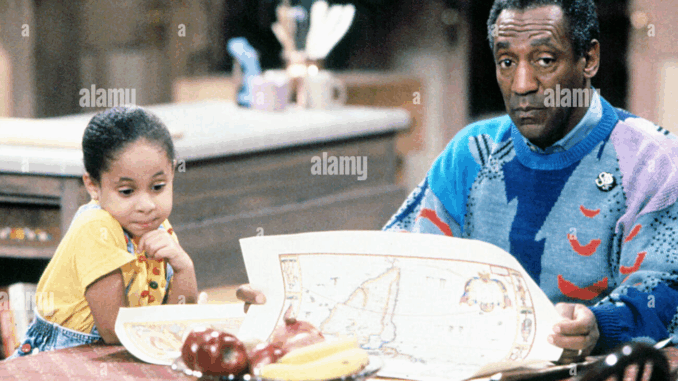
When The Cosby Show debuted in 1984, American television had never seen anything quite like it. It wasn’t just another family sitcom — it was a quiet revolution. In the decades since it went off the air, debates have swirled around the show’s place in pop culture. But one thing remains clear: The Cosby Show still matters, and here’s why.
A New Vision of Black America
At a time when African American characters on TV were often relegated to side roles or caricatures, The Cosby Show offered a bold counter-narrative. The Huxtables were educated, affluent, and deeply rooted in family values — a portrayal that defied prevailing stereotypes.
For millions of viewers, especially Black audiences, the Huxtables became a source of pride. They saw themselves reflected on screen in ways that were rarely afforded by mainstream media. For white audiences, the show quietly challenged assumptions and fostered empathy through humor and humanity.
Education as Empowerment
One of the most consistent themes throughout The Cosby Show was the importance of education. Whether it was Cliff’s lectures on life or Clair’s fierce advocacy for their children’s success, learning was at the heart of the family’s identity.
The show didn’t just entertain — it inspired. College enrollment among Black students rose during the show’s run, a shift that many scholars partially credit to its positive portrayal of higher education, particularly through A Different World.
Redefining the American Sitcom
In terms of structure and tone, The Cosby Show broke new ground. It didn’t rely on slapstick or over-the-top gags. Instead, it was quiet, character-driven, and smart. It featured jazz music, surreal cutaway scenes, and heartfelt conversations that felt authentic and timeless.
That blend of humor and sincerity influenced countless sitcoms that followed, from Fresh Prince to Modern Family, proving that family comedies could be both funny and meaningful.
The Shadow of Controversy
There is no way to discuss The Cosby Show today without acknowledging the serious allegations against its creator and star. Bill Cosby’s fall from grace has led many to re-evaluate the show’s legacy, and understandably so.
However, the show’s impact extended far beyond one man. It was the work of talented writers, directors, and actors who built a world that changed television — and in many ways, American culture.
Conclusion: A Legacy Worth Examining
The Cosby Show may now sit at the uncomfortable crossroads of legacy and controversy, but its influence is undeniable. It opened doors, shaped minds, and reminded us that representation isn’t just about visibility — it’s about dignity, depth, and storytelling.
As we look back, we must do so with clear eyes — acknowledging both the triumphs and the contradictions — while continuing the conversation it started about family, race, and what it means to be seen.